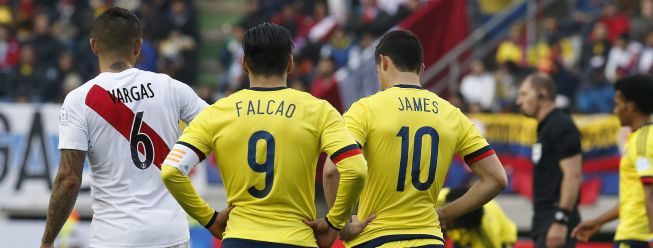Frenetic Weeks in Espanyol's Sports Management
Every week is frenetic in Espanyol's sports management, but the dedication grows especially when major national championships are held. The Copa América is currently in the spotlight for Óscar Perarnau's team, who do not miss any details of what is happening in Chile. The technical secretary, Ángel Gómez, explains the importance of seeing the players in this type of championship. "We follow the Copa América entirely. However, we already know all the players, but it is always good to see them compete in a major event and see what they are capable of, especially those players who have not left their country, because the contexts change," he says.
Some of these players that Gómez mentions are even on the lists handled by the sports management to reinforce the team in case of any unexpected sales or departures during the current preseason. "There are players who are on our lists. The majority of national teams, such as Colombia, have all their players competing in Europe. There are other countries like Paraguay, which has interesting players who play there, just like Venezuela or Peru. We have them under control because they have stood out in their teams throughout the year," he adds.
Emerging Countries. Although there are some countries that are beginning to contribute large numbers of players to European football, such as Colombia, the truth is that Espanyol has not managed to establish a player from across the Atlantic for several seasons now. The most recent case is that of Jhon Córdoba, a Colombian who came from Mexican football and, despite showing promise, failed to win over the coaches. There have been cases that turned out to be a failure, such as that of Adrián Luna. A young talent from Uruguay who came to Espanyol in exchange for one million euros and did not even make his debut in La Liga.
We would have to go back to the 2005-06 season, when Pablo Zabaleta arrived at Espanyol and his performance increased. Before that, the flow between America and Espanyol was more constant. According to the technical secretary, times have changed. "The main complications in bringing players from those countries are economical. Now any player from there is well paid and does not want to leave unless his contract improves. It was not like before, when everyone yearned to cross the pond. The key aspect that makes us more reluctant is the adaptation process. It is true that the game is becoming more and more similar to European football, but the competitiveness here is also greater and that is why there are often difficulties. In our case, due to the economic situation, we are obliged to be more responsible and minimize risks," highlights Gómez, who does not lose sight of the tournament's developments.
For the sports management, each country has its own market and type of football. Nowadays, clubs may be looking at states they had not previously considered: Brazil and Argentina. "All countries have a lot of potential, but some are prohibitive. Brazil and Mexico are expensive. But there are others like Chile, Uruguay, Peru or Venezuela where we are going to gather all the possible information. We believe Ecuador and Colombia are the countries with the most potential today and where the most interesting footballers are coming from," he reflects.
This formula has proven successful for clubs like Sevilla, multiplying the purchase price by two, three or even four times. Discovering talents in America and buying them at a cheap price for Sevilla's economy, although unaffordable for the Pericos. "Monchi?," Gómez asks. "We work in the same way. In recent years, Sevilla has succeeded but has also invested. Money attracts money. It is good that you can invest in quality because if it works, it gives you returns and the value rises. Sevilla is showing that with work and a little money, a model like this can work."

